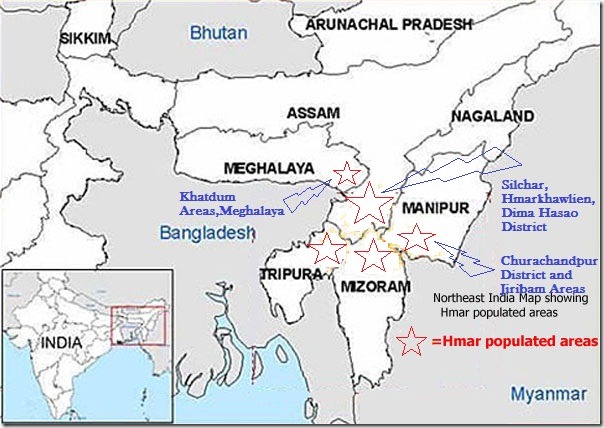By Ranju Dodum and Khelen Thokchom
 AAPSU members at the news conference
AAPSU members at the news conference
Itanagar/Imphal, April 14 : The clamour against the extension of the
controversial Armed Forces (Special Powers) Act has been mounting in
Arunachal Pradesh with student unions and political parties raising the
pitch.
The All Arunachal Pradesh Student's Union (AAPSU) has termed the
Union home ministry's decision to impose the army act along districts
bordering Assam as a "murder of democracy." It said, "The implementation
of AFSPA is not justified," and has planned a rally on Wednesday with a
march to the Raj Bhavan. The same day, the People's Party of Arunachal
will also stage a rally.
Extending support to AAPSU, North East Students Union (Neso)
coordinator Pritam Bhai Sonam said, "We have tasted AFSPA, and in 2007,
one person was shot dead by the army at Gumto near the capital while he
was searching for his mithun." The mithun is Arunachal's state animal.
While chief minister Nabam Tuki has already made his displeasure over
the decision known to Union home minister Rajnath Singh, the Arunachal
Pradesh Congress Seva Dal chief organiser Kipa Kaha accused the army of
indulging in illegal activities. Kaha alleged that army personnel have
been "caught indulging in multi-million rupee drug trade as well as
extorting the public."
The state unit of the Nationalist Congress Party (NCP) said
implementing the AFSPA in the state would render its people "unsafe in
the hands of the army."
While rival political parties have decried the Centre's move, the
state BJP unit said it was taken due to failure of the state government
to curb militant activity.
The act's implementation is limited to the 12 districts bordering
Assam - West and East Kameng, Papum Pare, Lower Subansiri, West and East
Siang, Lower Dibang Valley, Lohit, Namsai, Changlang, Longding and
Tirap.
Yesterday, Union minister of state for home Kiren Rijiju, who hails
from Arunachal himself, said he had "directed home ministry officials to
review it and seek suggestions from the state government for
alternative views".
Manipur support
Rights and student activists of Manipur, too, have extended support to the protest by the people of Arunachal Pradesh.
Two activists of the state, Babloo Loitongbam, the executive director
of Human Rights Alert, and Neso secretary-general Sinam Prakash, will
attend a series of discussions to protest the imposition of the act in
Arunachal Pradesh, beginning on April 19.
The act has been in force in Tirap, Changlang and Longding districts
of Arunachal Pradesh where various factions of the NSCN are active since
1991 after they were categorised disturbed areas. It was subsequently
extended to a 20-km belt in districts that share borders with Assam.
"Prakash and I will take part in the deliberations on Arunachal
Pradesh, beginning on April 19. This is to show our solidarity with the
people of Arunachal Pradesh," Loitongbam said.
Manipur, which is already reeling under the impact of the act, has
been most vocal in denouncing the act and is demanding its repeal.
Irom Sharmila, a human rights activist, has been fasting for nearly 15 years, demanding repeal of the act.
Her fast was triggered by the killing of 10 civilians by Assam Rifles
troops at Malom in Imphal West in 2000, in retaliation to a militant
attack.
"We show solidarity with the people of Arunachal Pradesh. Neso has
been demanding all these years that the act should go. We strongly
oppose the extension of the act in more areas of Arunachal Pradesh,"
Prakash said.














